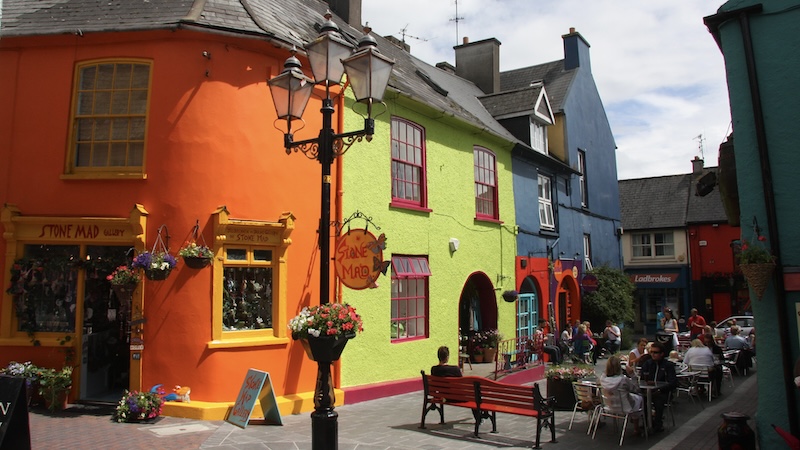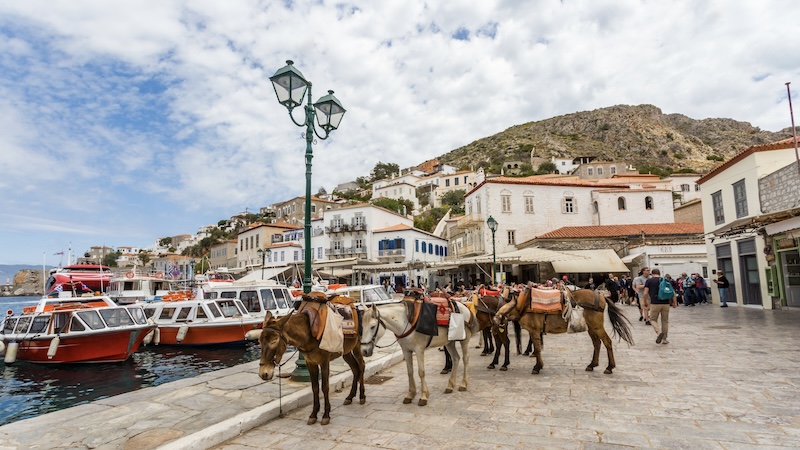Explore Your Roots Through Heritage Travel
Visit ancestral homelands and even people

Some people have shifted their travel attention to discovering their roots. Known as heritage travel or ancestry tourism, these trips connect travelers with their ancestral homelands.
Move over, Eiffel Tower. Step aside, Sistine Chapel. Instead of heading to well-known tourist destinations, many travelers are exploring tiny towns and remote villages in a bid to connect with their ancestral roots.
It’s all part of a trend known as heritage travel, or ancestry tourism. Folks go to their homelands to see sights their forebears saw, taste foods that inspired family recipes, and possibly add a few branches to the family tree through connections made on the ground.
The heritage travel boom is partly fueled by advances in technology and genetics that make it easier than ever to trace your roots. Digitized records and online genealogical research sites offer extensive information, while the mass availability of at-home DNA testing kits lets just about anyone delve into their background.
At the same time, people are readily sharing their family trees on social media sites such as Facebook with the hope of finding long-lost relatives. They’re also tuning into popular ancestry-related programs such as PBS’s Finding Your Roots, which traces the background of celebrity guests.
And there’s one more major factor stoking interest. In our increasingly virtual world, people are seeking authentic connections – including a connection to those who came before us, says Jackie Hogan, author of the book “Roots Quest: Inside America’s Genealogy Boom.” She says, “Genealogical tourism provides a sense of belonging. It gives us the feeling that we’re part of something bigger than ourselves.”
Heritage travel tips
Interested in traveling to your ancestral home? Use our guide to create a successful journey.
Do some sleuthing
Research is the single most important component of planning a meaningful trip. Start by asking relatives about your family background. See whether they can share materials such as photographs, letters, marriage licenses and death certificates for you to review. Also, check your attic, old filing boxes in the basement or any other storage areas where you might have material that can help you piece things together.
Online databases and other heritage-focused websites are robust sources of information, too. However, there are likely tens of thousands of sites out there, says genealogist John Boeren, a past president of the Association of Professional Genealogists, which has more than 2,000 members representing over 40 countries.
Navigating through dozens of resources can quickly get overwhelming. To narrow your choices, start with the online sources that have already compiled a good amount of information. One to explore is FamilySearch.org, a free service provided by The Church of Jesus Christ of Latter-day Saints. It has 13 billion searchable names in its historical records section, which includes draft cards, birth certificates and census records. The site also has a massive number of other resources. Among them: collaborative family trees through which users can contribute information, correct errors and connect with distant relatives.
Wondering why the LDS Church funds this? The site says it’s designed to “help people draw strength from their family relationships — past, present, and future.”
Another helpful option is Ancestry (www.ancestry.com), which has more than 65 billion records from more than 88 countries. Ancestry offers memberships with pricing that varies depending on the information and tools available, the length of the membership, and whether you pay the fee up front or monthly.
The World Explorer membership, for example, includes access to U.S. and international birth, marriage and death records, along with other enhanced features; payment options include a $319 fee if you pay for a year of access up front, or a $40 monthly fee if you commit to just a month at a time.
If you use Ancestry’s DNA testing kit, which typically costs $99, you receive information about your ancestry composition and insights into regions where your ancestors likely lived, along with access to a list of people who share similar DNA as you, and the ability to contact those potential relatives. You can also pair a DNA testing kit with an Ancestry membership.
Hiring a pro
If you’re not a do-it-yourselfer, you can get expert assistance through professionals such as genealogists who live in the area where your relatives once roamed. The benefit of hiring someone local is that these experts are on the ground, know the territory and speak the language, says Hogan.
She adds that your local historical society may also be able to give you resources or point you in the right direction when it comes to constructing your family tree. Plus, both the Association of Professional Genealogists and Ancestry have genealogist directories you can easily search to see whether one meets your needs.
Be sure to give the professional enough time to get their work done, says Boeren, who offers heritage travel planning in the Netherlands through his company, Antecedentia. If you reach out two weeks before your trip, an expert is likely to be booked up, and you’ll be out of luck.
If you decide to hire a pro, get details on their pricing models. Find out whether they charge hourly or by the project, and get written confirmation of the services they’ll provide before you spend any money. Hogan says she paid about $200 to $300 for a basic 30-page report on her heritage in County Cork and County Kerry, Ireland, but notes that more-comprehensive services can cost thousands of dollars. In fact, “the sky’s the limit in terms of those services,” she says.
The Association of Professional Genealogists notes that hourly rates can vary from $30 to $40 per hour to well over $200 per hour, based on experience, location, project type and uses, demand, time constraints, and other factors. In addition to an hourly fee, many genealogists charge for additional expenses, such as their travel-related costs. In the case of Ancestry, its ProGenealogists services start at $3,700 for the first 20 hours of research, which can include overseas researchers reviewing local records.
Evaluate your travel options
Many of us have mixed backgrounds, so your first step is to determine which lineage you want to prioritize. Often, it’s best to fully focus on one region or country at a time instead of trying to cram in multiple destinations. Even after you decide where to go, you’ll still have a good amount of decision-making to do. Ancestry tourism “comes in all shapes and sizes,” notes Boeren.
A helpful next step is to determine your budget. Think through what is most important to you, so you can be sure to allocate enough spending for those areas. “Take it from my experience: Focusing on your must-haves will not only save time and money, but lead to a better experience,” says Drew Boyer, a certified financial planner who visits Germany every summer with his wife, who is a native Berliner. “If you’re going with a group, make sure you’re all on the same page beforehand.”
Once you set your goals, determine whether you’re going to do all the research and planning yourself, use a mix of professional and DIY services, or fully outsource everything. On a trip to Ireland, Hogan used info from a local genealogist to chart her way. “I did a self-drive itinerary, and I stayed in modest hotels,” she says.
Laura Petrecca is a contributing writer at Kiplinger Personal Finance magazine. For more on this and similar money topics, visit Kiplinger.com.
©2025 The Kiplinger Washington Editors, Inc. Distributed by Tribune Content Agency, LLC.
As an Amazon Associate, Boomer Magazine earns from qualifying purchases of linked books and other products.


